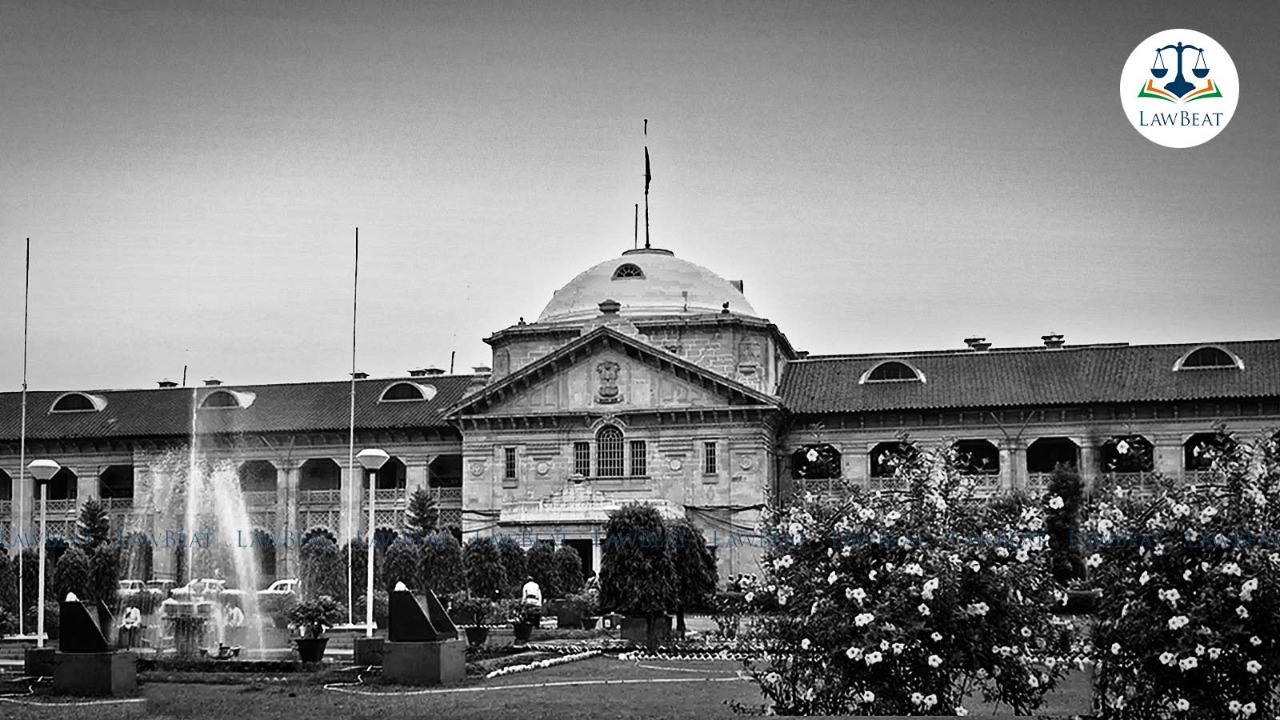'Zero Tolerance for Crime is Commendable, But Due Process Essential': Allahabad HC Calls for Training of Officials Under Gangsters Act

Citing the Rigveda, court noted the ancient Indian scripture's emphasis on protecting the innocent and condemning harassment and oppression
In a significant move to ensure the proper enforcement of the Gangsters Act, the Allahabad High Court has directed the Uttar Pradesh State Government to provide specialized training for District Police Chiefs, District Magistrates/Police Commissioners, and Nodal Officers.
These officials, who are the competent authorities under the Gangsters Act, will undergo training or crash courses to learn the meticulous preparation of gang charts in accordance with established rules and court directions.
The primary aim of this training is to prevent the misuse of the Act and ensure that only appropriate cases are prosecuted under its provisions.
The division bench of Justices Arun Kumar Singh Deshwal and Siddhartha Varma emphasized that the training would serve a dual purpose. "This training on the one hand will reduce the scope of getting away of the gangsters from the clutches of the Gangsters Act and on the other it will save innocent persons who are merely involved in petty, one or two cases, though they would not come within the definition of the gangsters as per Section 2(b) of the Gangsters Act, from getting booked under the Gangsters Act," said the bench.
The bench suggested that this training or crash course could be conducted in phases at the Judicial Training and Research Institute (J.T.R.I.) in Lucknow, organized by the Principal Secretary Law/LR, Govt. of U.P., or at any other suitable location chosen by the State government.
In a detailed order, the division bench summarized the guidelines for preparing and approving gang charts. These guidelines include the necessity for competent authorities to record their satisfaction explicitly as required by Rule 16 of the Rules, 2021. The satisfaction must be documented in clear terms rather than merely signing a pre-typed statement. Additionally, the authorities are required to apply their minds to both the gang chart and the accompanying documents before giving their approval.
The guidelines also mandate that the date of filing the charge sheet under the base case be mentioned in the gang chart, except in cases where the Gangsters Act can be invoked during investigation as per Rule 22(ii) of the Rules, 2021. Before approving the gang chart, a joint meeting between the District Magistrate and the District Police Chief must be conducted, with the minutes of the meeting recorded in a designated register. This register should be available for court review if needed.
Court further directed that the competent authorities, including District Police Chiefs, District Magistrates, and Nodal Officers, must include the date below their signatures when recording their satisfaction. The District Magistrate or Commissioner of Police must verify that the Nodal Officer and District Police Chief have properly recorded their satisfaction in accordance with the Rules, 2021, and the guidelines issued by the State Government following various High Court judgments.
The judgment came in a bunch of writ petitions where first information reports registered under the U.P. Gangsters and Anti Social Activities (Prevention) Act, 1986 had been challenged on the ground that while preparing the gang charts of the FIRs in question, the competent authorities had not applied their minds and prepared gang charts in violation of the Rules, 2021 as well as several directions issued by the High Court.
It came to light that despite clear directions from the State Government and various judicial rulings, some officers continued to follow improper procedures, such as signing pre-typed satisfaction notes without proper review
While dealing with the issue, the division bench emphasized that no innocent person should suffer due to the laxity of officers. The court highlighted that procedural rules under the Gangsters Act are designed to prevent false implications, ensuring that no innocent person is wrongfully prosecuted. This principle aligns with societal norms and religious teachings that have influenced the legal system, court pointed out.
It referred to several religious texts to stress the importance of protecting the innocent. Citing the Rigveda, the court noted the ancient Indian scripture's emphasis on protecting the innocent and condemning harassment and oppression. The court also referenced the Bible's teachings in Exodus 23:7, which condemns false charges and the unjust punishment of innocent people. Additionally, the Quran's Surah Al-Ma’edah (5:32) was cited to underscore the prohibition against unjustly taking a life or oppressing innocent individuals.
Furthermore, the court stressed that the object of procedural rules under the Gangsters Act must adhere to the principle that "99 accused may be acquitted, but one innocent person should not be punished."
Case Title: Abdul Lateef @ Mustak Khan v. State of UP and 2 Others and Connected Matters
